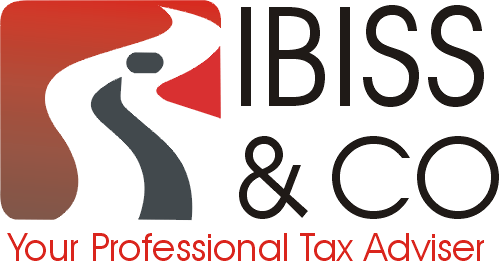The deadline for Requirement to Correct has passed. For many people who have overseas interests and issues with their historic tax position the harsher Failure to Correct scheme will now apply (and the penalties that come with it).
In this blog we look at the many panalties that will be levied against taxpayers who have failed to make a disclosure to HMRC as well as the options available for appeal. Note that this blog will only provide a brief overview. if you are concerned about your position with regard to Requirement to Correct. We strongly recommend that you contact IBISS & CO without delay. One of our expert tax advisers will be able to provide more detailed guidance and – if possible – help reduce penalties, saving you time and stress.
What Is the Failure to Correct Penalty?

The Failure to Correct penalties apply to individuals who missed the 30th September Requirement to Correct deadline for disclosing their offshore tax liabilities. These penalties are far more severe than those applied to earlier voluntary disclosures.
Penalties Under the Failure to Correct Regime
- Standard Penalties for Non Disclosure: Provided that the taxpayer has made a disclosure regarding underpaid taxes by the 30th September deadline, standard penalties/interest rates apply (up to 100% of any tax due).
- Increased Penalties for Failure to Correct: For people who failed to disclose to HMRC by the deadline, the Failure to Correct charges start at a minimum of 200% of the underpaid taxes.
- Asset-Based Penalties: For certain cases asset-based penalties of up to 10% of the asset value will be Charge.
- Penalties for Concealing Assets: If an asset has been moved from one jurisdiction to another (with the aim of preventing exchange of information), a further penalty of 50 of the potential lost revenue (PLR) will be charged.
- Naming and Shaming Penalty for Serious Cases: For the more serious cases of fraud relating to overseas assets (where taxes amount to £25,000+) the individual may also be ‘named and shamed’: an action that could have serious consequences for businesspersons (such as reputational damage) and also prove quite distressing to the involved parties.
These penalties can be harsh but it is possible to reduce these penalties by co-operating fully and making a comprehensive disclosure.
Your Right to Appeal Failure to Correct Penalties
Taxpayers have the right to appeal against both the decision and the specific amount of any Failure to Correct penalties. HMRC will judge appeals individually based on the specific facts surrounding each case.
Next Step:
IBISS & CO expert advisers can help you navigate this complex area and minimise penalties reducing your stress and potential financial burden.
What Counts as a Reasonable Excuse?
While all taxpayers subject to RTC penalties can appeal, the grounds for claiming a reasonable excuse are very limited. HMRC will not entertain excuses such as a lack of funds or reliance on another person. Furthermore, a reasonable excuse may be invalidated if it applied in the past but is no longer relevant to the current situation.
Disqualified Advice: When Professional Guidance Won’t Help Your Appeal

If the taxpayer took advice from a qualified professional – and consequent actions were taken as a result of said advice – they may have grounds to appeal. If the advice is deemed to be ‘disqualified’, however, this cannot be used as a ‘reasonable excuse’. Advice may be deemed disqualified if:
- The person giving the advice wasn’t qualified to do so.
- The person giving the advice did not take the taxpayer’s circumstances – or other relevant information – into account.
- The advice was not given directly to the taxpayer.
- The advice given related to a tax avoidance scheme.
Taxpayers should seek updated advice from independent professionals to avoid these issues. This will ensure the advice received is valid and can support an appeal.
Next Steps: Correct Your Tax Position with IBISS & CO
Taxpayers who are concerned about guidance they may have received in the past are advised to have this refreshed as soon as possible, and to have an independent adviser assess the original advice. Should the latter action be taken, it should not fall into the ‘disqualified advice’ category provided that the professional concerned is truly impartial: they must not have been involved with the original matter in any capacity (either as an adviser or participant).



